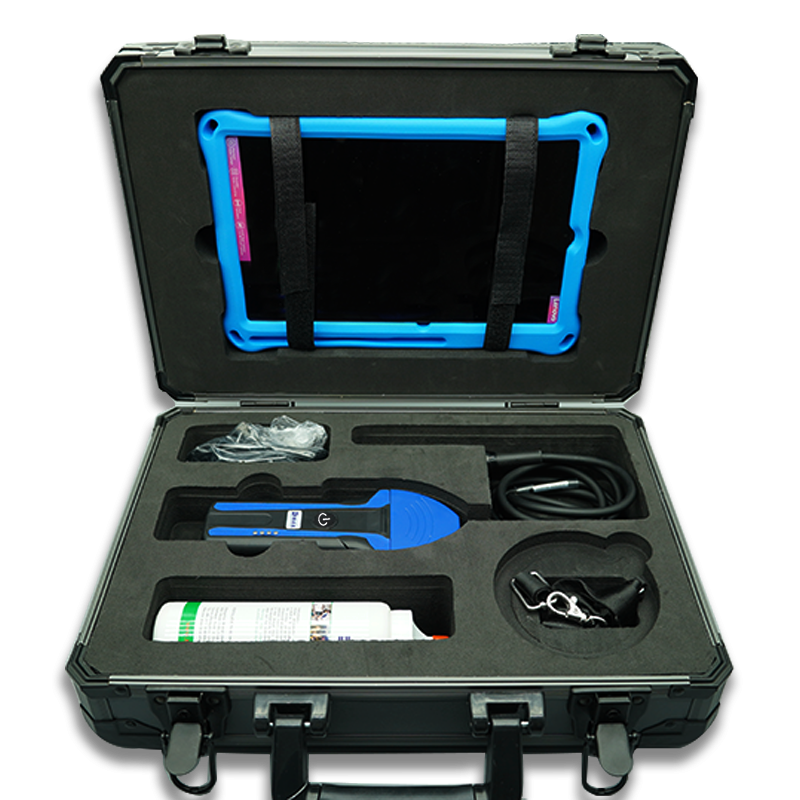In the world of livestock management, early pregnancy detection is key to improving herd productivity and ensuring optimal breeding cycles. In Brussels and beyond, BXL Veterinary offers advanced pregnancy scanning techniques to help farmers effectively manage their cattle. But how exactly are cows scanned for pregnancy? In this article, we’ll explore the different methods used to confirm pregnancy in cows, with a focus on the ultrasound scanning technique, which has become a reliable and non-invasive tool for farmers.

Why Pregnancy Detection is Important for Cattle Management
Knowing whether a cow is pregnant or not is crucial for effective herd management. Detecting pregnancy early allows farmers to:
- Identify non-pregnant cows (open cows) for rebreeding, minimizing time between cycles.
- Improve calving intervals and optimize reproductive efficiency.
- Ensure proper care and nutrition for pregnant cows, improving the health of both the cow and the calf.
- Reduce feed and resource costs by focusing attention on productive cows.
With these benefits in mind, it’s essential for farmers to understand the various methods available for pregnancy detection in cows.
Common Methods for Scanning Cows for Pregnancy
There are several ways to determine if a cow is pregnant, each with its advantages and limitations. Below, we outline the most common methods used by veterinarians and farmers alike.
1. Rectal Palpation
Rectal palpation is one of the oldest and most widely used methods for pregnancy detection in cows. This manual technique involves a trained veterinarian or technician inserting a gloved arm into the cow's rectum to feel for changes in the reproductive organs, such as the size and shape of the uterus, and the presence of a developing fetus.
Pros:
- Inexpensive and widely available.
- Can be performed as early as 35-45 days after insemination.
Cons:
- Requires specialized training to perform accurately.
- Less precise than ultrasound for early pregnancy detection.
- Invasive and may cause stress to the cow.
2. Ultrasound Scanning
Ultrasound scanning is a more advanced and accurate method of pregnancy detection, particularly popular for its ability to provide early and detailed information about the pregnancy. Using high-frequency sound waves, an ultrasound machine creates real-time images of the cow’s uterus and any developing fetus inside.
At BXL Veterinary, we use state-of-the-art ultrasound equipment to offer reliable and non-invasive pregnancy checks for cattle in Brussels. Here's how the process works:
- Preparation: The cow is safely restrained in a cattle chute or head gate to ensure it remains calm during the procedure.
- Insertion of the Probe: A lubricated ultrasound probe is gently inserted into the cow’s rectum. This position allows the veterinarian to get a clear view of the uterus and ovaries.
- Image Analysis: The ultrasound machine displays real-time images of the reproductive organs, allowing the veterinarian to detect pregnancy. By around 28-30 days post-breeding, a small, fluid-filled sac and the developing fetus can be seen.
Pros:
- Can detect pregnancy as early as 28-30 days post-insemination.
- Provides detailed images of the fetus and reproductive organs.
- Can diagnose multiple pregnancies (twins) or potential issues like uterine infections.
- Non-invasive and safe for both the cow and the fetus.
Cons:
- Requires access to ultrasound equipment and trained personnel.
- More costly than rectal palpation, though the accuracy and early detection often justify the investment.
3. Blood and Milk Pregnancy Tests
Another option for pregnancy detection is through blood or milk-based pregnancy tests, which detect pregnancy-associated glycoproteins (PAGs) in the cow's system. These tests can be performed as early as 28 days after breeding by collecting a sample of the cow's blood or milk.
Pros:
- Non-invasive and easy to administer.
- Can detect pregnancy relatively early, around 28 days post-breeding.
- Simple testing process that can be done on-farm with minimal training.
Cons:
- Results take time since samples must be sent to a lab.
- False positives are possible, especially if the cow has recently given birth.
- Does not provide any additional information about fetal health or multiple pregnancies.
Why Choose Ultrasound for Cow Pregnancy Detection at BXL Veterinary?
Among the methods available, ultrasound scanning offers the most comprehensive and early detection for pregnancy in cows. Here’s why it’s the preferred option at BXL Veterinary:
Early Detection: Ultrasound can confirm pregnancy much earlier than rectal palpation and with greater accuracy than blood tests.
Detailed Health Insights: Ultrasound allows veterinarians to assess the overall health of the fetus and the reproductive organs, making it possible to detect issues such as infections or twin pregnancies early on.
Non-Invasive and Stress-Free: Since ultrasound is a non-invasive procedure, it is safe and causes minimal stress for the cow. There is no need for sedation or invasive instruments.
Mobile Services: At BXL Veterinary, we offer mobile ultrasound services, meaning we can come directly to your farm. This is particularly convenient for farmers with large herds or those who prefer not to transport animals to a clinic.
Professional Expertise: Our veterinary team is highly trained in using ultrasound technology for cattle. We ensure accurate results and detailed recommendations to help you make informed decisions about your herd’s reproductive health.
When to Schedule a Pregnancy Scan?
The optimal time to schedule an ultrasound pregnancy scan for your cows is around 28 to 35 days post-insemination. This allows for early detection and ensures that you can make timely decisions about rebreeding or preparing for calving. Regular ultrasounds can also be scheduled throughout the pregnancy to monitor fetal health and development.
Conclusion
For farmers looking to optimize their cattle breeding programs, understanding how cows are scanned for pregnancy is essential. While rectal palpation and blood tests have their place, ultrasound scanning offers the most accurate and detailed insight into a cow’s pregnancy. At BXL Veterinary, our ultrasound services provide early detection, reproductive health monitoring, and expert care, helping you manage your herd effectively.
To learn more about our BXL cow ultrasound pregnancy services or to schedule an appointment, contact us today and let our team support your herd's health and productivity.
tags:


